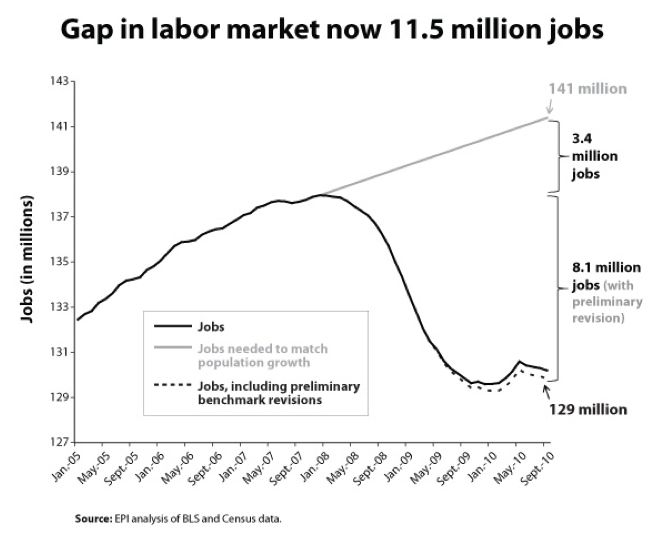ubrew12 July 11th, 2009 2:07 pm
I wonder if we could appeal to Canada's healthcare system to treat us? I mean, if enough Americans got together and simply said, 'we are going to buy into Canada's healthcare system. We'll send our money to Canada every month, and they will treat us when we are ill according to their protocols.' If ENOUGH Americans said this, the government would have to go along, wouldn't they? If, say, 50-100 million Americans just said, 'I'm buying Canadian healthcare', we could negotiate our way out of the corporate-dominated American system altogether, and let them fight over the scraps that were left.
This is actually a great (and very interesting) idea from the economics perspective, because many Americans could offer the Canadians more per person for Canadian health care than the Canadians themselves are paying, but still save a lot of money over what they would pay in the grossly overpriced American system. In other words, many Americans could more than pay their way into the Canadian system and still come out way ahead of where they are now.
To a limited extent, Americans buying into better health systems is already going on. For example, some Americans buy drugs from Canada. And more and more Americans are getting critical health care by simply travelling to any one of numerous other countries to get it. Anyone up for a European vacation that pays for itself, laugh out loud?
This would not work for the impoverished Americans, though, because they can not afford even Canadian health costs. And I don't have a clue as to how you could get the Canadians to politically agree to this though.
A related alternative to this is for a good number of American health practitioners to opt out of the failed insurance system and then simply form health co-ops that would be miniature single payer systems, with the cost control achieved by consent of the buyers and sellers rather than through the Government. The practitioners would lose only a small amount of income and possibly nothing at all if they did this, since they too are heavily burdened by the needless costs, delays, paperwork, and denials of care of the health insurance industry and of the malpractice insurance industry.
Again though, this would not work for the poor in the US unless they could find some practitioners who were willing to become truly progressive and offer price for health service schedules that were sliding based on income.
Note that these kinds of solutions are solutions based on "free market theory". Such solutions do not work for the poor, and they are also, ironically, ignored or quickly shot down by the fake right wing proponents of "free markets".
If laws and/or regulations forbid doctors etc. now or in the future from offering their services outside of the health insurance system, then we are truly living in a very unfree society.
RESPONSE:
ubrew12 July 11th, 2009 4:50 pm
Yeah, I hadn't thought of how the poor would pay for it. Another problem would be the future lack of choice: buying single-payer health insurance from Canada, you'd have to commit to it, preferably for the rest of your life. The cost of getting out of it would have to be VERY steep (nationalized healthcare lowers risk by demanding the insured be broad both geographically and over time; they pay a risk premium if you have the future option to get out of it). I'm beginning to realize that we pay a risk premium in America for the right to choose, and that premium is one of the reasons we have such high healthcare costs.
So Canada (if they went for this) would have to demand a 5-10-year (or lifetime) commitment from Americans buying in so they couldn't pay for one year, get all kinds of care, and then quit. There would have to be a non-profit American company that pooled all of the Americans who wanted to pay Canada for care, and which would be responsible along with the individual American customers for this and any other Canadian requirements.
Would someone please start up the American-Canadian Co-Op Health Care Company (a non-profit organization) immediately? I could do it I guess, but I'm no good at marketing or politics, laugh out loud. Thanks in advance.
Don't know quite what you mean by the "risk premium" in your last sentence. That term is normally associated with the profit-making insurance industry. If health care is done by private health insurance companies, there are all kinds of forces which conspire to balloon out the costs (of both the care and the insurance). One of them is the actuarial risk calculations, which of course the insurance companies distort in their favor extensively.
By the way, in a true free market economy, health care insurance would be a very risky business to be in, and some health insurance companies would lose money in some years. But since almost all American health insurance companies rake in fortunes every year, we know just from that that the US does not feature a free market economy, at least insofar as health care is concerned.
Commonly added to premiums resulting from these distorted (upward) actuarial calculations would be a "risk premium" which, loosely translated, means "safety margin surcharge added on to make sure that our insurance company can not possibly lose out on the care we actually intend to pay for". Then on top of all that more surcharges are added, most notably one for a profit for the shareholders and another one for extra money so that the executives can be paid obscene salaries.
And then even after making it a 100% certainty that they will make a killing in the business (excuse the pun) the private insurance companies engage in all kinds of denial of and reduction of care schemes that endanger and sometimes wreck the health of their customers.
Whereas, in a single payer system, scratch out just for starters the obscene salaries, the profit surcharges, the risk premiums (profit insurance premiums) and the distorted upward actuarial calculations. Limited time does not permit me to go through the list of other elements that increase the cost in the present system that go away in a single payer system.
In any single payer system, the actuarial calculations are reasonable at the least, not unreasonably excessive as in they are in the US. In the US, a good chunk of health insurance premiums go not only to making the insurance company profitable, but to insuring the insurance company is profitable via various surcharges, as ironic as that may sound, since most people think insurance companies can possibly lose money, or at least they used to think that.
Where cost control is especially prized, such as in Japan, actuarial calculations are intentionlly conservative, the precise opposite of the situation in the US. Then, in countries such as Japan, if actual demand for health care exceeds the calculated projected demand by a substantial amount, pressures to rein in hypochondriacs and to increase the supply of hospitals, doctors, MRI machines, and so forth, are automatically generated, and the Government, in conjunction with private industry, makes sure that the supply is quickly increased. Occasionally, someone with a serious problem in Japan during unexpected high demand might have to be transferred to a nearby prefecture to get immediate health care.
This means that unless the Government is incompetent, even if the Government underestimates the demand for health care a little, which might happen in a conservative and carefully managed system such as Japan's, all people who really need care still get all the care they need, with at worst small and almost always ultimately trivial waiting times.
[The above exchange was in response to this article.]






No comments:
Post a Comment